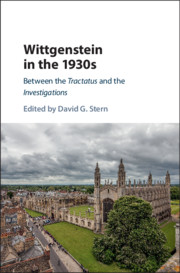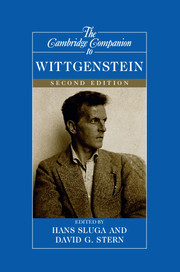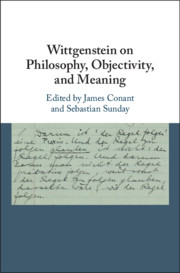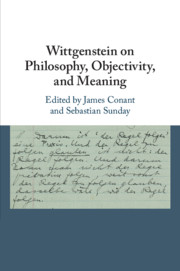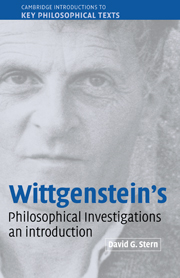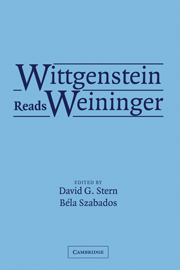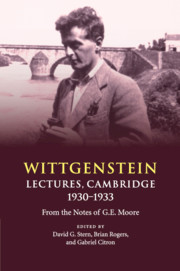Wittgenstein in the 1930s
Wittgenstein's 'middle period' is often seen as a transitional phase connecting his better-known early and later philosophies. The fifteen essays in this volume focus both on the distinctive character of his teaching and writing in the 1930s, and on its pivotal importance for an understanding of his philosophy as a whole. They offer wide-ranging perspectives on the central issue of how best to identify changes and continuities in his philosophy during those years, as well as on particular topics in the philosophy of mind, religion, ethics, aesthetics, and the philosophy of mathematics. The volume will be valuable for all who are interested in this formative period of Wittgenstein's development.
- This is the first collection of essays in English on Wittgenstein in the 1930s
- Written by a group of leading international experts from many different countries and from a wide range of perspectives
- Represents the best new work on the topic
Reviews & endorsements
'Overall, the collection is excellent - it includes interesting, well-written essays by notable Wittgenstein scholars … Stern's introduction is especially helpful in situating the book in the existing literature and debates, and may be of broad interest.' M. J. Moore, Choice
‘For Wittgenstein, throughout his life, philosophy was seen as 'not a doctrine but an activity' … This philosophical unrest is exposed, analyzed and discussed throughout the book. … The present volume, then, does a great service for Wittgenstein scholars and followers - not only because of the depth and quality of the essays comprising it but also in reminding us what philosophy 'as an activity' may mean.’ Notre Dame Philosophical Reviews
‘Overall, the collection is excellent - it includes interesting, well-written essays by notable Wittgenstein scholars … Stern's introduction is especially helpful in situating the book in the existing literature and debates, and may be of broad interest. Recommended.’ Choice
Product details
November 2018Hardback
9781108425872
310 pages
235 × 156 × 20 mm
0.63kg
Available
Table of Contents
- Introduction: Wittgenstein between the Tractatus and the investigations David G. Stern
- Part I. Changes and Continuities in Wittgenstein's Philosophy:
- 1. Wittgenstein and Moore on grammar David G. Stern
- 2. Wittgenstein on understanding: language, calculus and practice Alois Pichler
- 3. Wittgenstein on sentence-hypotheses and certainty Mauro L. Engelmann
- 4. Wittgenstein on meaning, use and linguistic commitment Anna Boncompagni
- 5. Will there soon be skilful philosophers? Wittgenstein on himself, his work, and the state of civilization in 1930 Wolfgang Kienzler
- 6. Wittgenstein and his students:
- 1929–33 James C. Klagge
- Part II. Philosophy of Mind:
- 7. From Moore's lecture notes to Wittgenstein's Blue Book Hans Sluga
- 8. 'Two kinds of use of 'I'': the middle Wittgenstein on 'I' and the self William Child
- 9. Wittgenstein on rules and the mental Volker A. Munz
- Part III. Religion, Ethics, and Aesthetics:
- 10. Wittgenstein's discussion of 'use of such a word as 'God'' Anat Biletzki
- 11. Wittgenstein on ethics, May 1933 Duncan Richter
- 12. Wittgenstein on aesthetic normativity and grammar Hanne Appelqvist
- 13. Wittgenstein's remarks on aesthetics and their context Joachim Schulte
- Part IV. Philosophy of Mathematics:
- 14. Moore's notes and Wittgenstein's philosophy of mathematics: the case of mathematical induction Warren Goldfarb
- 15. Wittgenstein, Goodstein and the origin of the uniqueness rule for primitive recursive arithmetic Mathieu Marion and Mitsuhiro Okada.

